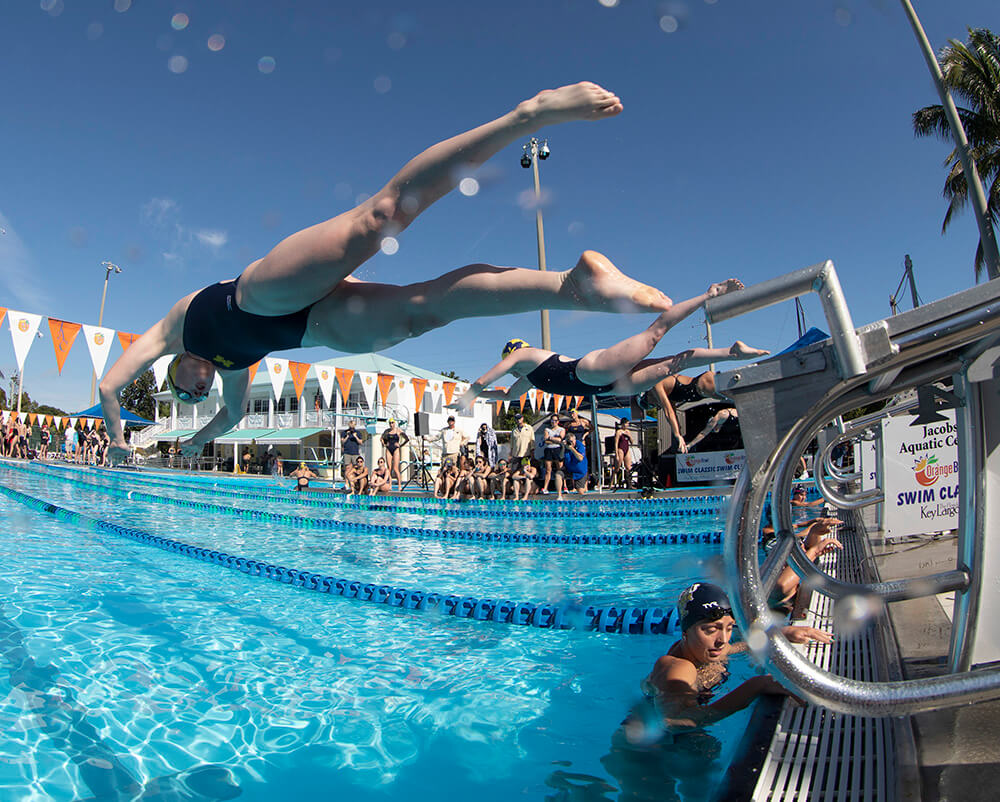Swimmers are Control Freaks: Inside the Paradox of Control

Swimmers are Control Freaks: The Paradox of Control
What is control? Is it power? Is it dominance? For the majority of history, human kind has fought for control, and that is especially true for swimmers.
While we have lost men, time and sometimes blood, we have stopped at nothing to deem ourselves in control. Ironically, in our blind lust for control, we still somehow also look for situations in which we have no control. For those of age, we may engage in the consumption of alcohol to feel any control we may have slip slowly and purposefully out of our fingers.
Our relationship as swimmers with control is a complex one. We think that we can hold on to control. If control was a horse, we somehow believe that the tighter we hold on to the reins, the more dominance we will have over it — somehow winning the battle between us. And yet we are then surprised when the horse is reluctant and pushes against the suffocating grip we have decided to exert over it.
Control is a tricky entity. Paradoxically, the less we seem to exert ourselves over it, the more control allows us to take the lead. Somehow trusting an equal balance of power between the two of you.
How does this relate to swimmers? The best example is breath control. We know that breath control is a part of the sport.
You would think in a sport where breathing is regulated by being underwater that we would have a natural control over our breath. However, when a breath control portion of our practice rears its ugly head, the opposite seems to be true. We push off the wall with the intention of only taking one breath for that 50. We start out relaxed and smooth. A 50 is not that long.
We feel our bodies glide effortlessly across the water with no thought to the air in our lungs and then, suddenly, we are on the complete opposite end of the spectrum. We try to swallow what little air we have left and force ourselves to hold our heads underwater.
We feel our legs burning and our heads clouding. The more we try and control our need to breathe, the less air we seem to have. The water seems to be getting thicker by the second and we don’t seem to be pulling as much as we did when we started. We think to ourselves “This has to be what drowning feels like.” We are trying to exert control over our breath and control, in turn, mocks us in it’s victory by suffocating us until we get to the wall and finally fill our empty lungs with air.
So is control power or dominance? Personally, I do not think that it truly is either. To me, control is an idea that we have created in order to make ourselves feel some sort of comfort about the situations that we are in. When assigning the captain’s hat over who has “control”, we seem to think that it will create a determination over the outcome of any situation.
That just by wearing the captain’s hat will deliver us to the promised land.
What we forget to realize is that, generally, we have no control over anything. We cannot control the weather, time, our teammates or even what coach is writing up for a main set that day – no matter how much we wish we did on that one.
Control is a paradoxical illusion, the more you think you have the less you actually do. However, we continually engage in the power struggle to command control.
If control is a paradoxical illusion, then why do we try to grab at it so often? The answer is simple. We want to be prepared. As humans, we long for comfort. We want to know exactly what is coming at us so that we are prepared. We want to know the main set before we even warm up, so to speak.
However, that really is never possible. Life is about surprises, like it or not. Those surprises are put there to challenge you. Just like coach “surprising” you with an all out 100 off the blocks at the end of practice. Were we as swimmers expecting to do an all out 100 at the end of the practice when we are already dead? Most likely not.
But that is out of your “control.” You conquer the idea of control by being open to the singular moment at hand. You make the choice to be present in the singular second you are in and focus on yourself and how well you can execute this surprise 100 that coach graced you with.
You relinquish the idea of control and realize that wherever will be will be. Either this 100 will go well or it won’t. But you will work for the latter. We cannot predict the future. There is no way of knowing how the 100 will go until after it is done.
When it is over, you can always look back and see where mistakes were made and learn from them, but you cannot worry about something that has not happened yet. Control tricks us into thinking that we can somehow control outcomes but really all we can do is what is right in front of us. Control doesn’t live in the present, only we do.
Que sera sera.
More from Jamie Kolar:
• Mental Health Awareness: A Message of Hope to Former Swimmers Struggling
• A Letter To the Coach Who Left Me
• The Confessions of a Back-Halfer



